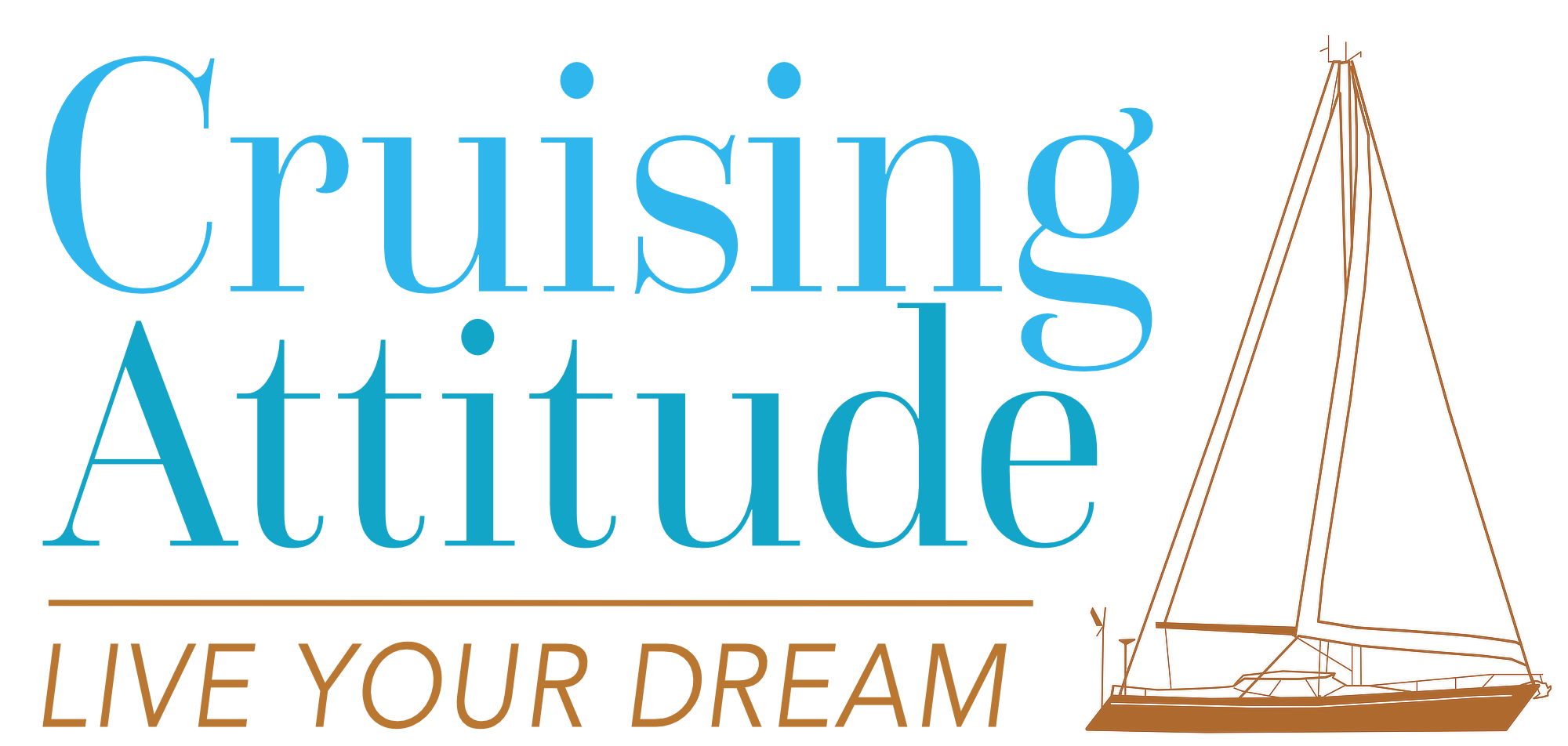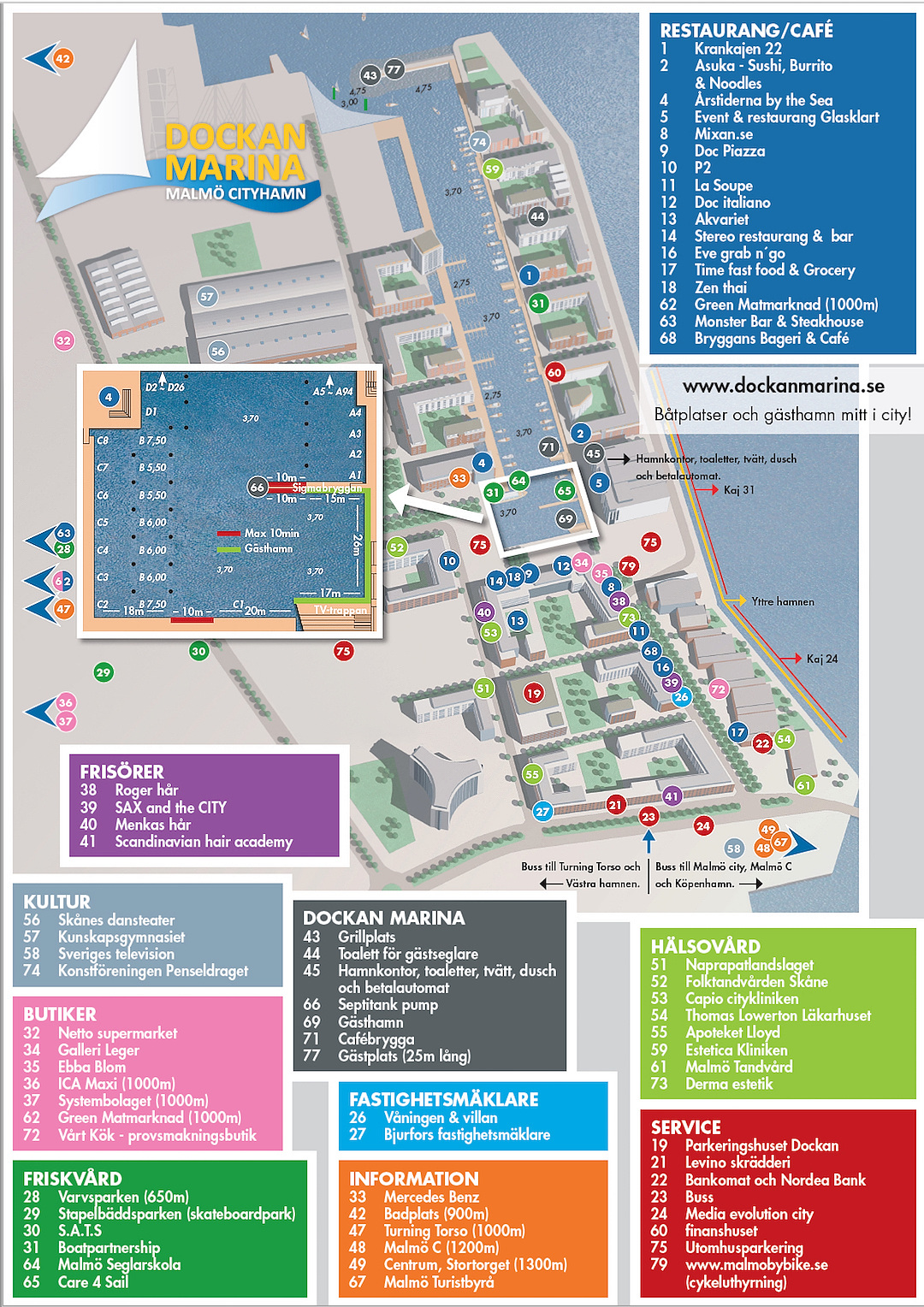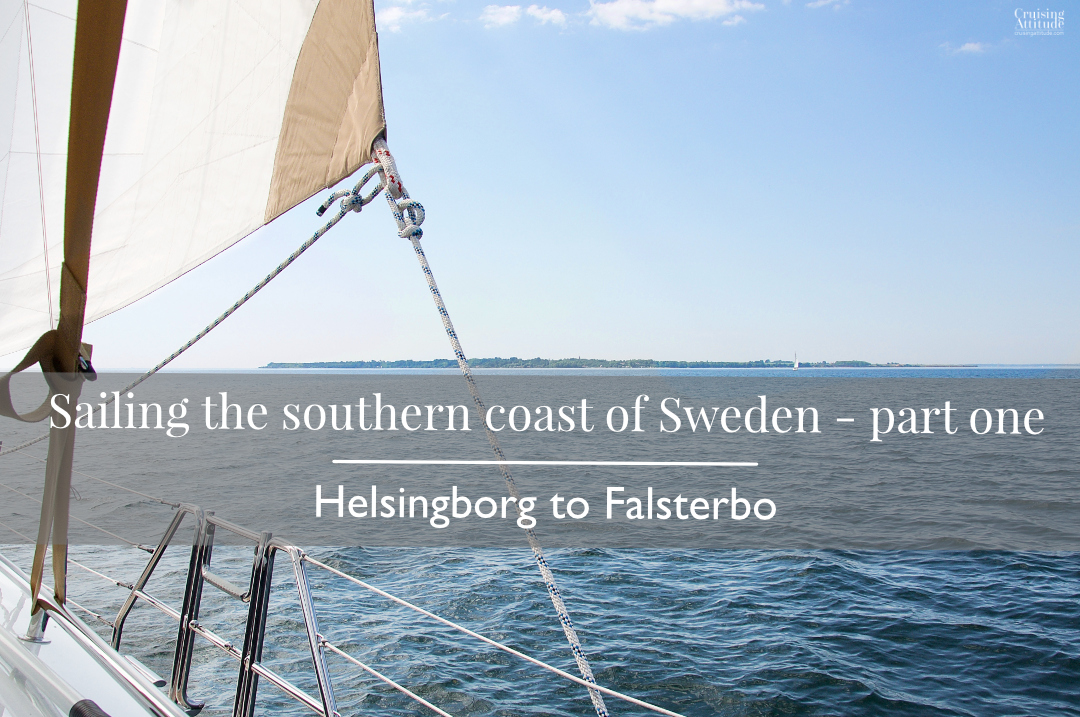
Sailing the southern coast of Sweden — part 1
Helsingborg to Malmö
Malmö’s well-known (at least in architectural circles) rebuild of it’s old docklands includes the Dockan Marina. We had visited this marina in July of 2015 when we sailed with Leon Schultz, our “sailing coach” and friend. We found it to be very convenient to essential cruiser shopping. The local mega supermarket, the ICA Kvantum, is just a 15-20 minute walk away (just 5 minutes with our bicycles). The state-run liquor/wine/beer shop is right next to the supermarket. Last but not least, the local drug store (called Apoteket in Swedish) is also right next to the supermarket.
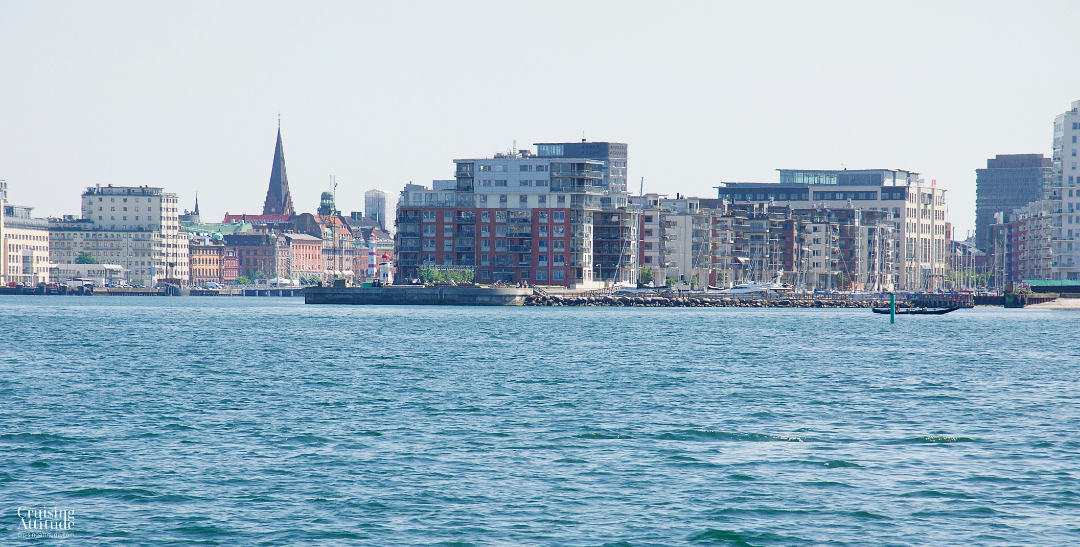
View towards Malmö and the entrance to Dockan Marina
One note about the Swedish drug stores and your prescription meds: if your prescription does not come from a country in the EU, you need to get your prescription re-written by a Swedish doctor. This happened to Jacques when trying to fill his prescription as Switzerland is not in the EU. The cost of the “translation” was 400 SEK. It’s perhaps a better idea to ask your doctor to give you a prescription for the entire period you are out cruising.
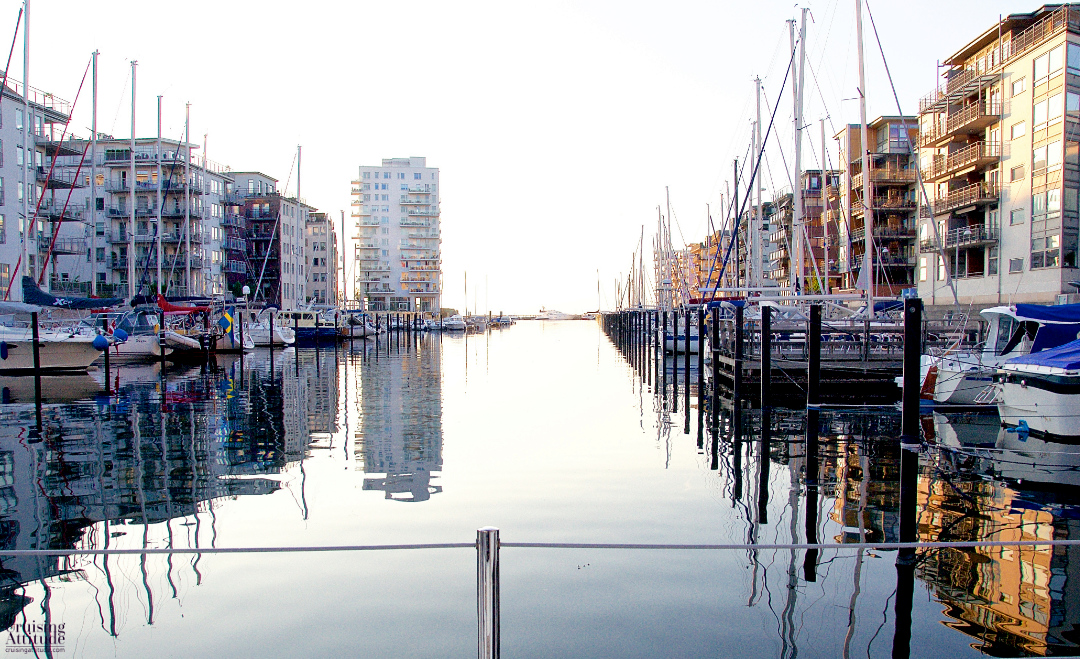
Dockan marina in Malmö
The Dockan Marina is convenient for the railway station in Malmö. It’s only a 10 to 15-minute walk away, so if you have friends joining you for a few days on the boat, they can fly to Copenhagen and take the train to Malmö central station (a 20-minute trip from the airport).
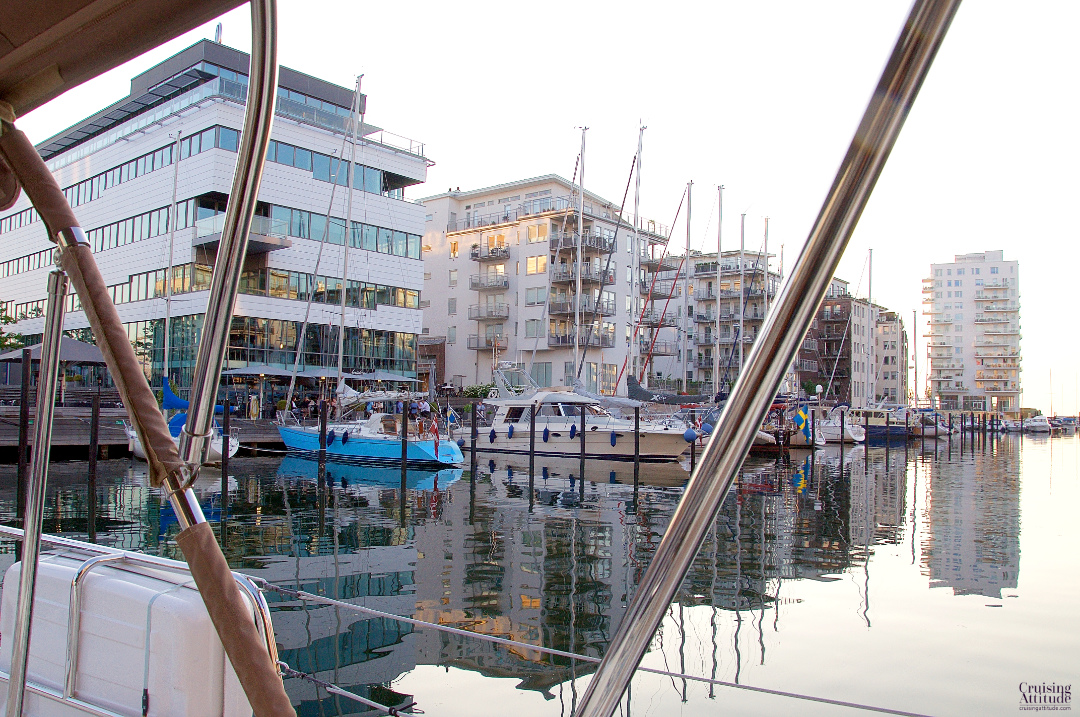
Another view of Dockan Marina in Malmö. There’s a very pleasant Italian restaurant in front of the blue boat
You can reserve a spot at the marina — essential during the summer months if you have a larger boat. We managed to get one of only 2 berths left! The marina is extremely well-run and if you call ahead there will be someone to show you your berth and help you with your lines.
We didn’t have much time in Malmö this time, so we had some take-out sushi from Asuka Sushi (almost next to the marina office) on the boat. There are, however, several different restaurants and cafés all around the marina.
Dockan Marina information:
Prices per night 2016 (Pay at the harbour office! If you pay on the pier an extra 100 SEK is debited)
- Up to 12 meters: 250 SEK
- 12-15 meters: 300 SEK
- 15-20 meters: 350 SEK
- Over 20 meters: 450 SEK
Services included in the fee:
- electricity,
- water,
- toilets,
- showers,
- WiFi,
- laundry facilities,
- bike rental (limited number)
- garbage disposal

The handy guide to Dockan Marina. You can download this as a pdf on their site.
Malmö to Falsterbokanalen (Falsterbo Canal)
In April, we went over the Öresunds tunnel part of the bridge between Malmö and Copenhagen. This time we were going under the bridge. There’s no need here to call bridge traffic on the VHF, as we had to do for the Store Baelte Bridge. Only vessels 200 tonnes or more need to do this. We do need to stay out of the shipping lanes though. The big ships pass under the highest part of the bridge and we pleasure boats pass under the span next to it. These are clearly marked in the inshore traffic lane.
The Öresund bridge is truly majestic. Judge for yourself with these photos!
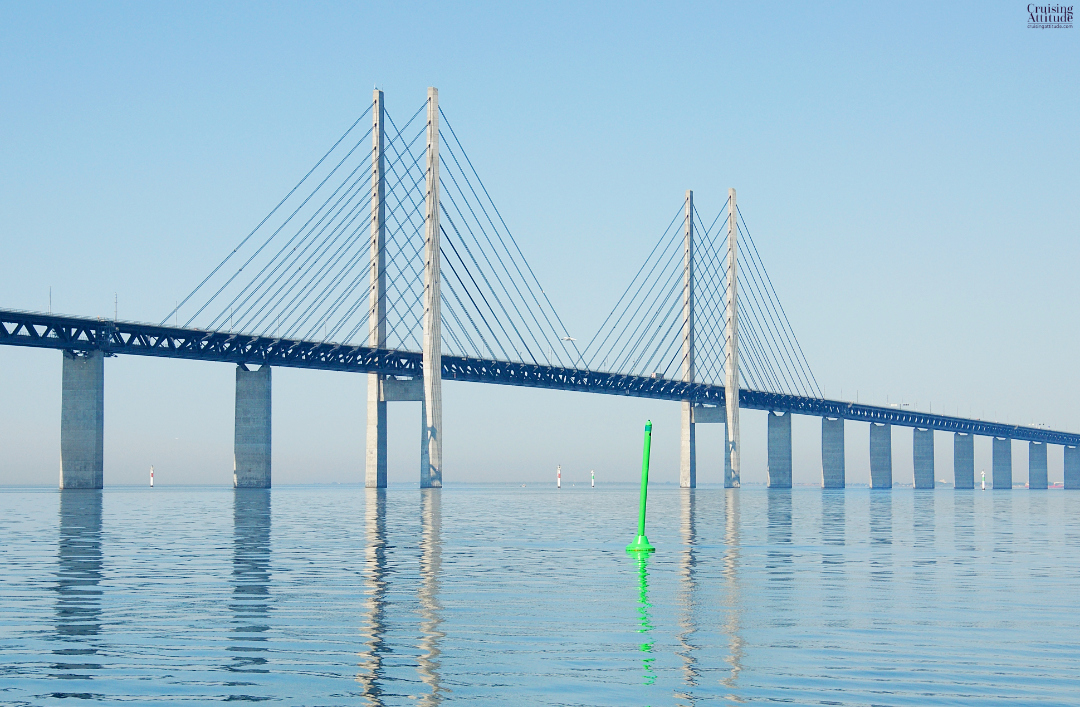
The Öresund Bridge on a beautiful summer day
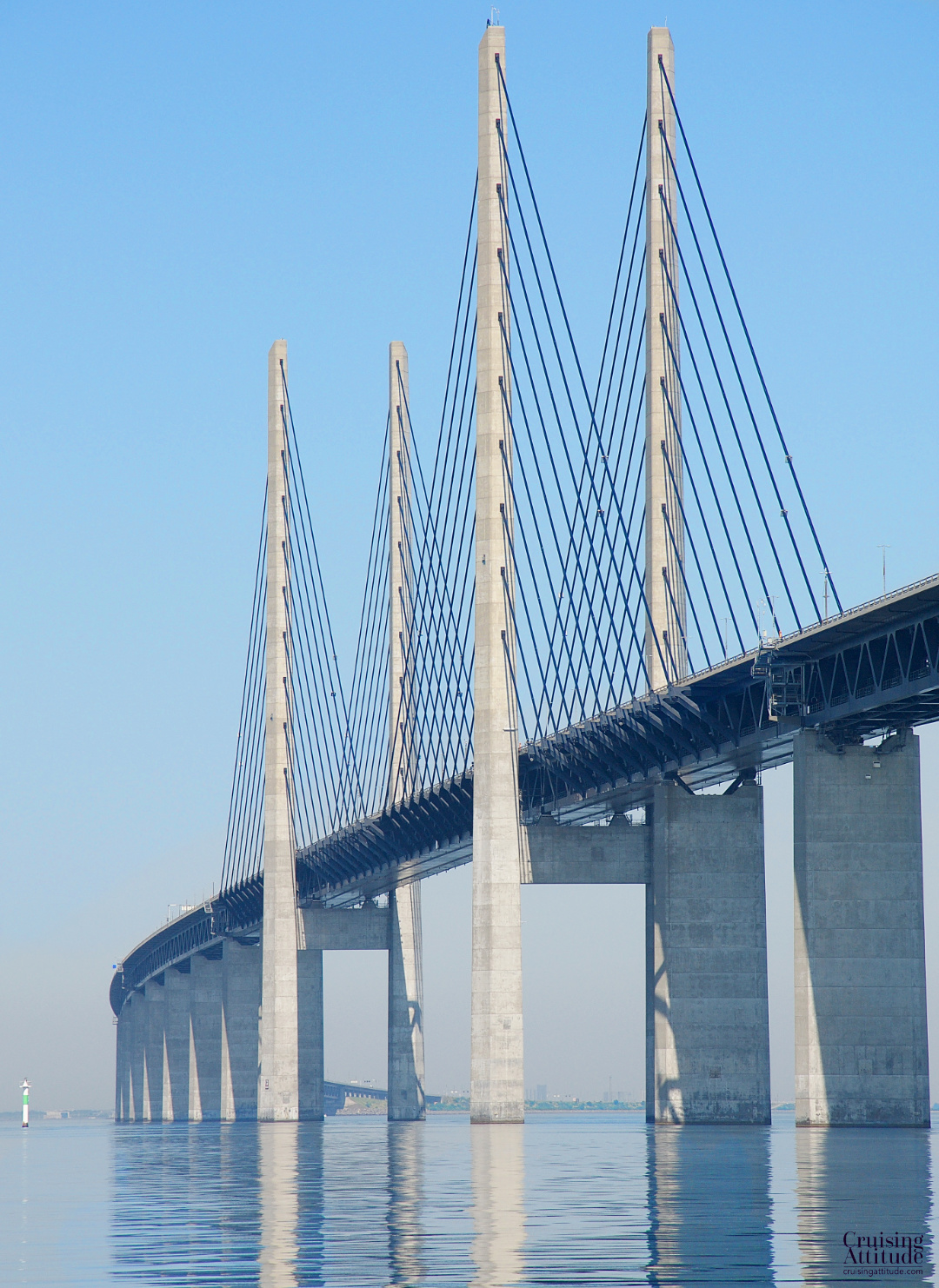
The height of the span for pleasure boats is 34 meters — more than enough for us!
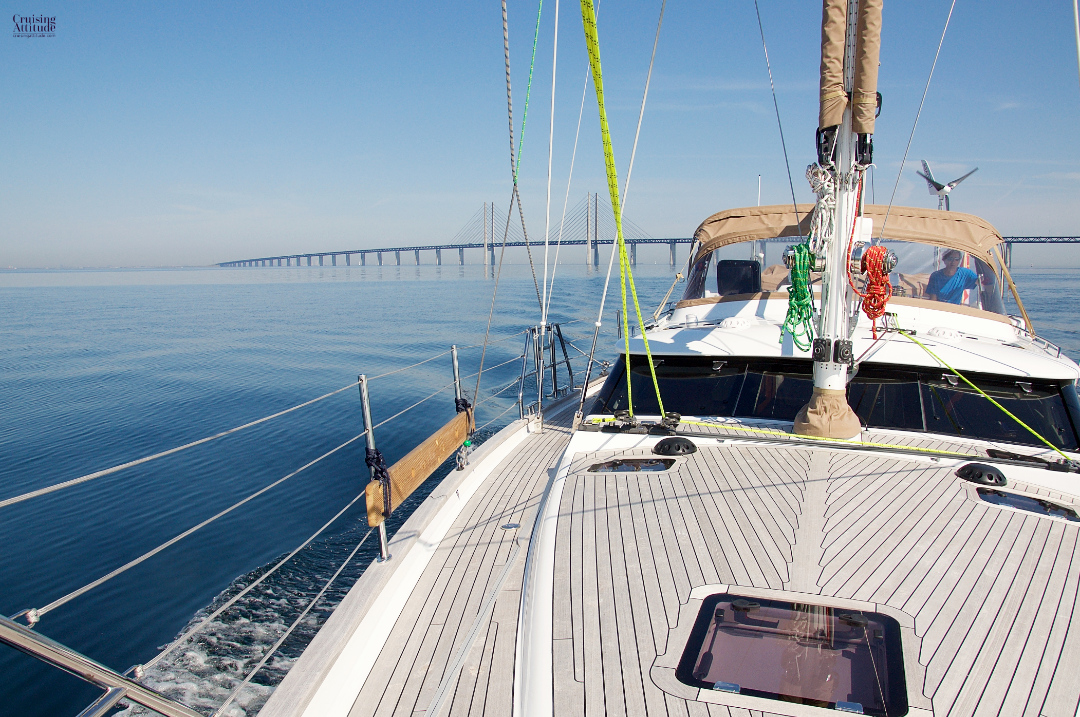
In the fairway leading to the Falsterbo Canal
Going through the Falsterbo Canal (Falsterbokanalen)
Most cruisers who want to get to the south and east coast of Sweden will go through the Falsterbo Canal. It saves about 8-9 nautical miles compared to going around the peninsula of Skanör/Falsterbo. Saving mariners a few miles, however, was not the reason for the construction of the canal. During the second World War, the German navy had placed mines around the outside of the peninsula, so it was too dangerous for ships to go from the eastern part of Sweden to the western part. Construction of the canal permitted safe passage on neutral Swedish territory.
Today, only pleasure boats and the odd very small cargo boat still pass through the canal. One big practical tip that we learned from Leon Schultz (who learned this from a bridge operator): don’t wait for the green light to go up to the bridge. It’s open for only about a minute and it takes more than that to get to the bridge if you’re stationed at the waiting pontoons (the speed limit is 5 knots). The bridge has been known to close right in front of boats motoring up too slowly or from too far away.
Here’s the procedure: Observe the traffic flow on the bridge. When the barriers are about to come down for the road, a bell will sound (as at a railway crossing). That’s your signal to motor up to the bridge as quickly as possible (the speed limit is 5 knots). Don’t wait for the green light. As soon as you see the bridge start to open, proceed carefully ahead, even though the green light is not yet flashing. This way, you’ll arrive when the two sides are completely open and be able to go through. You can see in the video below that it doesn’t stay open for very long – maximum a minute or so. If there are boats behind you, they will appreciate that you don’t dawdle around. Good luck!
